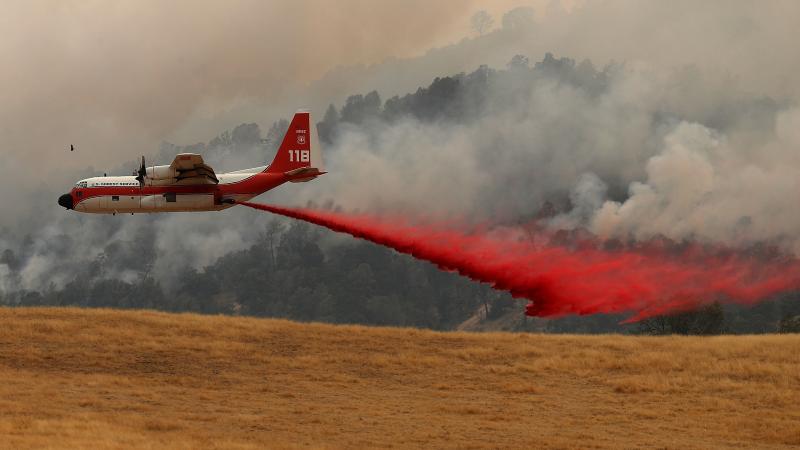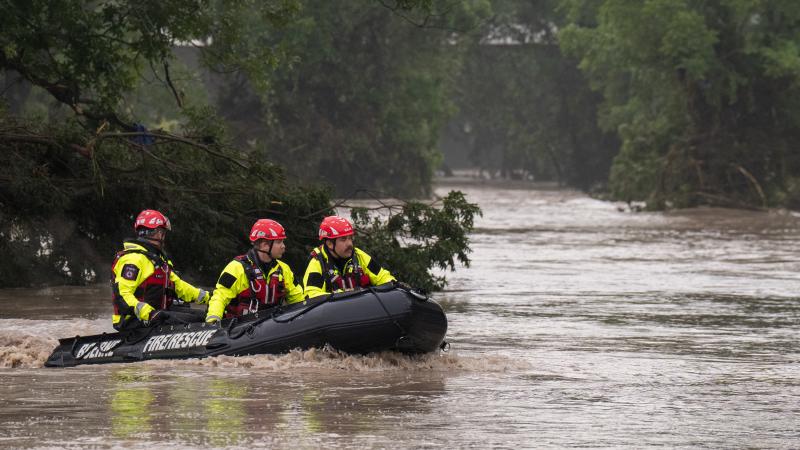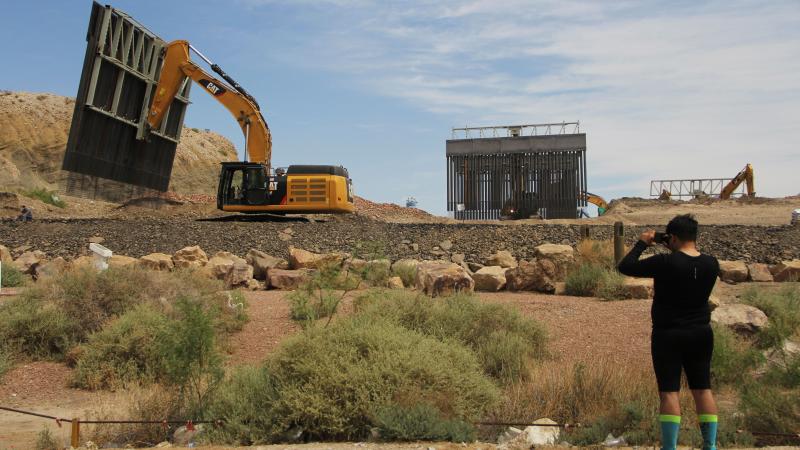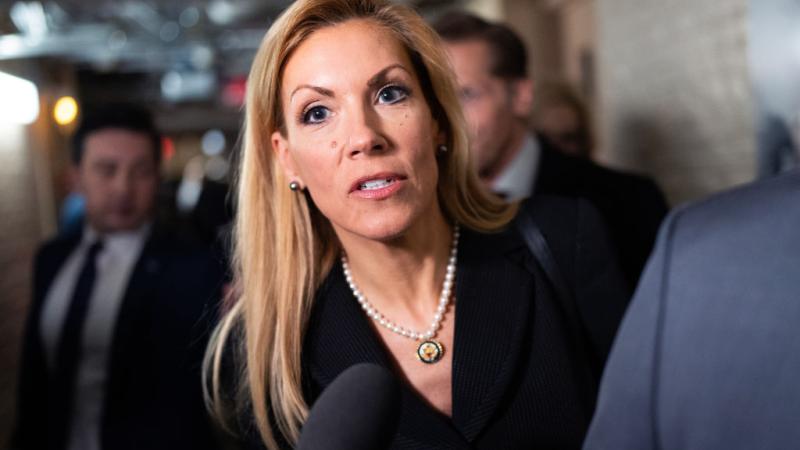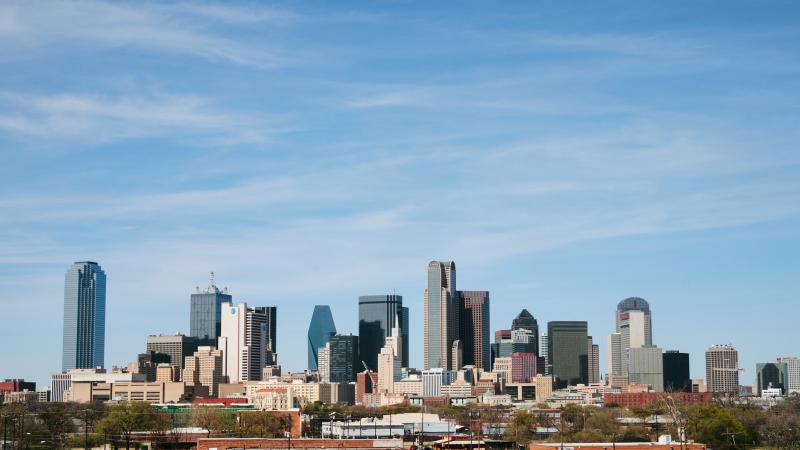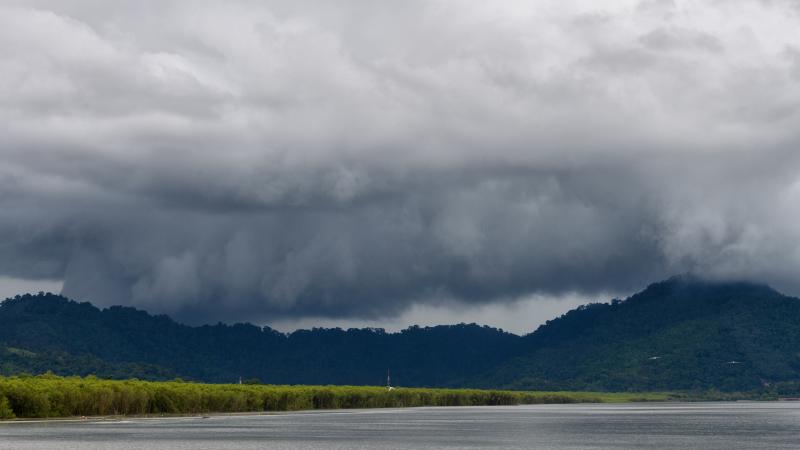New York 'Climate Clock' highlights decades of premature prophecies of global warming doomsday
The 10-year window to halt global warming has been repeatedly extended.
In honor of "Climate Week," New York City is playing host to a massive "Climate Clock" purporting to count down the years, days and minutes until the world reaches a climate catastrophe point-of-no-return. The oversized digital display, on view through Sept. 27, underscores a long history of climate doomsayers prematurely warning that a global climate tipping point is just a few short years away.
The digital clockface itself has been a fixture of New York City's Union Square for over 20 years. A landmark that has confused many tourists to the city, the clock's display normally denotes, in one long, unbroken string of digits, the current time of day (in military time) as well as the remaining number of hours and minutes left in the day itself.
Over the weekend, the clock instead began a straightforward countdown, one ticking off seven years and several dozen days, after which — according to the project's creators, artists Gan Golan and Andrew Boyd — the Earth will have used up its "carbon budget" and will careen toward irreversible climate catastrophe.
The artists said the countdown was based on the calculations put forth by the Mercator Research Institute on Global Commons and Climate Change, one that purports to measure the amount of time humanity has to reduce its carbon output to stay below a 1.5° Celsius warming threshold. The clock "shows how little time is left for political decision-makers to take action," the MRI says on its website.
Several decades of constantly shifting climate countdowns
The "Climate Clock" generated headlines across the world for its novelty and striking presentation of what activists claim is a final deadline before global temperatures reach a point from which there is no turning back.
Yet such prophecies are nothing new from climate scientists and activists, who have repeatedly warned the world over recent decades that it was very near the point of no return regarding carbon emissions.
Among the earliest such warnings was one from Noel Brown, who in 1989 led the U.N. Environment Program in New York. In that year, Brown warned that "entire nations could be wiped off the face of the Earth by rising sea levels if the global warming trend is not reversed by the year 2000," as a contemporary Associated Press report put it.
Brown said that scientists at that time were warning that there was "nothing" the world could do at that point to reverse a three-degree rise in temperatures. "Anything beyond that," he told the news service, "and we have to start thinking about the significant rise of the sea levels ... we can expect more ferocious storms, hurricanes, wind shear, dust erosion."
Many scientists have since extended the deadline for climate change redemption by years and even decades beyond Brown's 2000 cutoff. In 2006, for example, Columbia climate science professor James Hansen predicted that the planet had just 10 years to avoid major catastrophe. "I think we have a very brief window of opportunity to deal with climate change," he told the Climate Change Research Conference that year, stating that the planet had "no longer than a decade, at the most" to reverse catastrophic warming across the globe.
In 2008, Al Gore said in a speech that "leading experts predict that we have less than 10 years to make dramatic changes in our global warming pollution lest we lose our ability to ever recover from this environmental crisis." That same year, Australian scientist Tim Flannery argued that a United Nations climate summit in Poland that year was "likely to be our last chance as a species to deal with the problem."
The following year, in 2009, then-United Nations Secretary-General Ban Ki-moon warned at the U.N. Climate Change Summit Plenary that the world would soon reach "critical thresholds," incurring "consequences that we cannot reverse."
"The world's leading scientists warn that we have less than 10 years to avoid the worst-case scenarios projected by the Intergovernmental Panel on Climate Change," he said at the time.
That same year, the U.K.'s Prince Charles argued that the world had just eight years to avoid "irretrievable climate and ecosystem collapse, and all that goes with it."
In 2018, meanwhile, current U.N. Secretary General António Guterres extended Ki-moon's earlier cut-off by another year, warning in a speech that the U.S. had until 2020 to change course, after which "we risk missing the point where we can avoid runaway climate change."
More recently, climate activists have pushed the deadline out significantly further than earlier predictions, well past those of Ki-moon and Guterres. New York Democratic Rep. Alexandria Ocasio-Cortez, for instance, famously suggesed last year that "the world is gonna end in 12 years if we don't address climate change."
Also last year, Swedish environmentalist activist Greta Thunberg claimed that the world had 11 years to enact "permanent and unprecedented changes in all aspects of society" or else humanity would witness "the end of our civilization as we know it."



